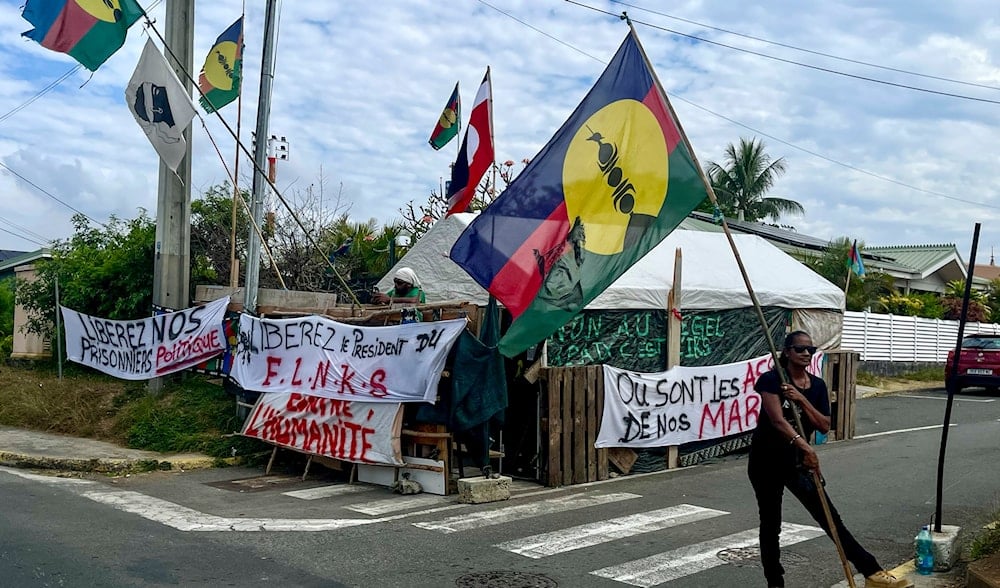France court approves Kanak leader's return to New Caledonia
Christian Tein leads a group the French authorities accused of organizing the May 2024 riots.
-

An indigenous Kanak holds the independent flag during the 171st anniversary of France's takeover of the Pacific Archipelago, in Noumea, New Caledonia, French Pacific islands, Tuesday, September 24, 2024. (AP Photo/Charlotte Antoine-Perron)
A French court has authorized Christian Tein, a prominent Kanak independence leader, to return to New Caledonia after more than a year of legal restrictions linked to the 2024 unrest that left at least 14 people dead.
On September 23, a Paris tribunal ruled that Tein, 57, could leave mainland France and return to the Pacific archipelago, according to a source close to the case cited by AFP. The decision came after magistrates noted his compliance with previous judicial conditions.
Tein had been freed in June 2025 following nearly a year in pre-trial detention in eastern France, but was barred from returning home. His release followed the finding by investigators that there was no evidence he was preparing an armed uprising, one of the accusations initially leveled against him.
The Paris prosecutor’s office has until Friday to appeal the court’s ruling, meaning Tein is expected to remain in France until then.
Background to the case
Tein, who hails from the indigenous Kanak community, leads the Field Action Coordination Cell (CCAT), a group French authorities accused of organizing the May 2024 riots. Those protests erupted after France's National Assembly approved electoral reforms that would expand local voting rights to newer French residents.
The Kanak population, comprising about 41 percent of New Caledonia’s 271,000 people, saw the measure as a threat to their political weight and independence aspirations. The reforms were widely denounced as undermining the 1998 Nouméa Accord, which limited provincial voting rights to long-term residents and their descendants.
When violent demonstrations broke out on May 13, 2024, they quickly escalated into widespread rioting, looting, and arson. The unrest left at least 14 people dead, including two French police officers, and caused an estimated €2.2 billion in damages. Paris declared a state of emergency and deployed 3,000 troops and police to restore order.
Significance of Tein's return
While detained, Tein was elected president of the Kanak and Socialist National Liberation Front (FLNKS), the coalition spearheading the independence struggle since the 1980s. The FLNKS has consistently rejected compromise models short of full sovereignty, framing the struggle as one of decolonization and indigenous rights.
His lawyer, Florian Medico, welcomed the ruling, telling AFP that "Tein’s possible return home is nothing but the result of the evolution of the case, which demonstrates his lack of involvement in the alleged facts."
France annexed New Caledonia in 1853, and the Kanak people endured decades of dispossession and marginalization under colonial rule. Despite the Nouméa Accord granting increased autonomy and three referendums on independence, all votes, held in 2018, 2020, and 2021, rejected secession. The last referendum, however, was boycotted by pro-independence parties, who denounced it as illegitimate.

 3 Min Read
3 Min Read










